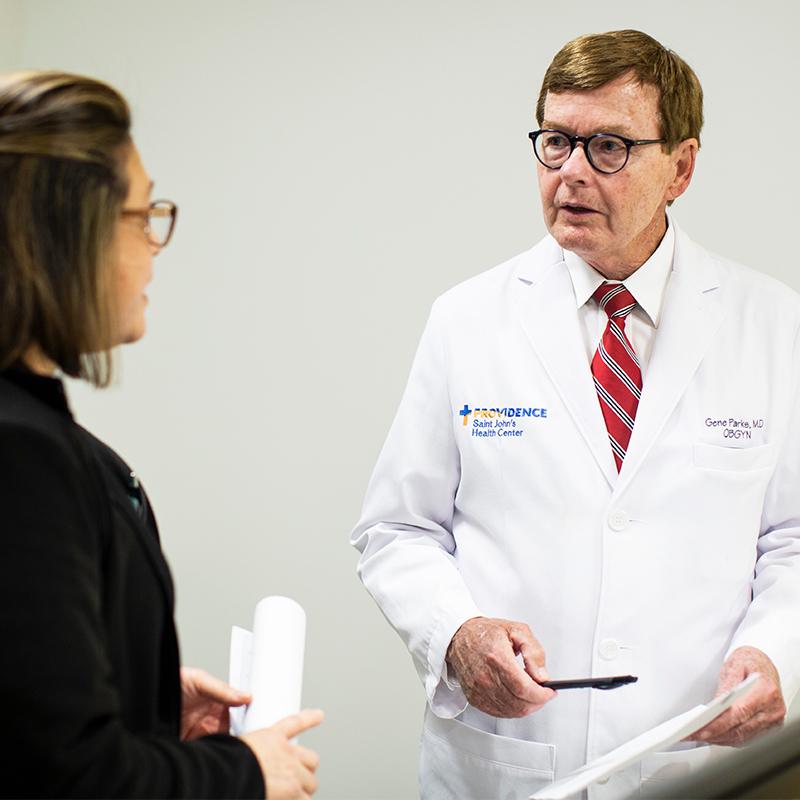Pelvic Pain and Endometriosis

Overview
What is Endometriosis ?
The tissue that lines the uterus is called the endometrium and is usually shed when you have a period. Endometriosis is a condition in which the endometrium that lines the uterus implants outside the uterus. These endometriosis implants can cause inflammation and scarring of the tissues in the pelvis that can cause pain, infertility and other potentially serious medical problems. Endometriosis is most often found on the ovaries, fallopian tubes, lining of the pelvic cavity and tissues that hold the uterus in place. It is a common health problem in younger women but can occur in a premenopausal woman of any age.
If you are experiencing any symptoms of endometriosis it is very important that you talk with your St. John’s Physician Partners gynecologist about it. Don’t wait and schedule an appointment today to make sure.
Symptoms
Endometriosis Symptoms
The symptoms for endometriosis may occur anytime during the menstrual cycle. Some women experience little to no pain, while others may have excruciating and disabling pain. Symptoms may include:
- Severe cramps or back pain during menstruation.
- Painful bowel movement or urination.
- Constipation.
- Abnormal or heavy bleeding during periods.
- Painful sexual intercourse.
- Pain during ovulation.
- Difficulty getting pregnant.

Diagnosis
Endometriosis Diagnosis
To diagnose endometriosis, your doctor will take a history of your symptoms, locations, severity and duration when the symptoms occur. During a pelvic exam your doctor may feel for findings consistent with endometriosis and may order an ultrasound or a magnetic resonance imaging exam (MRI). These tests will help identify endometriomas (cysts of endometriosis) and the areas of endometriosis. The most definitive way to diagnose endometriosis is by minimally invasive laparoscopic surgery, at which time a tissue biopsy may be taken.

Treatments
Endometriosis Treatments
Treatments for endometriosis will vary depending on your symptoms and whether you want to have children. You should share with your doctor your health goals and pregnancy plans so the most effective and appropriate treatment can be recommended.
Medication
In some cases, your doctor may recommend nonsteroidal anti-inflammatory drugs (NSAIDs) or birth control pills to alleviate pelvic pain.
Hormonal therapies
Your doctor may recommend hormonal therapies can treat or slow the growth of endometriosis.
Endometriosis resection surgery
If you have a serious condition and other therapies fail, your doctor may recommend endometriosis resection surgery as the only option to remove the endometriosis implants and scar tissue.
Other surgical options
Surgical options recommended may include minimally invasive laparoscopic surgery and GYN robotic surgery.
Specialists
















